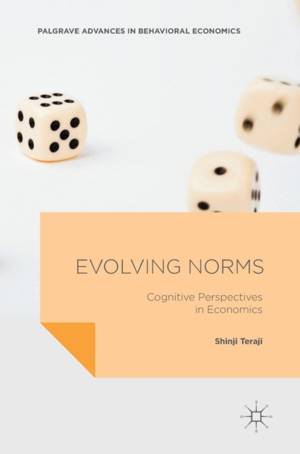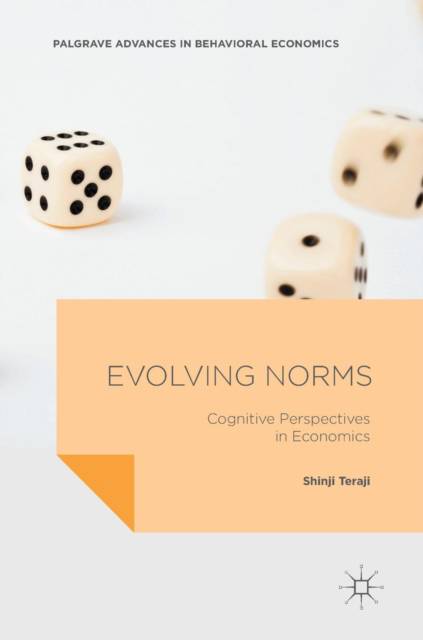
- Afhalen na 1 uur in een winkel met voorraad
- Gratis thuislevering in België vanaf € 30
- Ruim aanbod met 7 miljoen producten
- Afhalen na 1 uur in een winkel met voorraad
- Gratis thuislevering in België vanaf € 30
- Ruim aanbod met 7 miljoen producten
Omschrijving
This book presents institutional evolution and individual choice as codependent results of behavioral patterns. Drawing on F.A. Hayek's concepts of cognition and cultural evolution, Teraji demonstrates how the relationship between the sensory and social orders can allow economists to track social norms and their effects on the global economy. He redirects attention from the conventional focus on what an individual chooses to the changing social order that determines how an individual chooses. Cultural shifts provide the environmental feedback that challenges the mental models governing individual choice, creating a cycle of coevolution. Teraji develops a general framework from which to examine this symbiotic relationship in order to identify predictive patterns. Not just for behavioral economists, this book will also appeal to those who specialize in institutional economics, the philosophy of economics, and economic sociology.
Specificaties
Betrokkenen
- Auteur(s):
- Uitgeverij:
Inhoud
- Aantal bladzijden:
- 355
- Taal:
- Engels
- Reeks:
Eigenschappen
- Productcode (EAN):
- 9781137502469
- Verschijningsdatum:
- 8/06/2016
- Uitvoering:
- Hardcover
- Formaat:
- Genaaid
- Afmetingen:
- 150 mm x 211 mm
- Gewicht:
- 566 g

Alleen bij Standaard Boekhandel
Beoordelingen
We publiceren alleen reviews die voldoen aan de voorwaarden voor reviews. Bekijk onze voorwaarden voor reviews.











